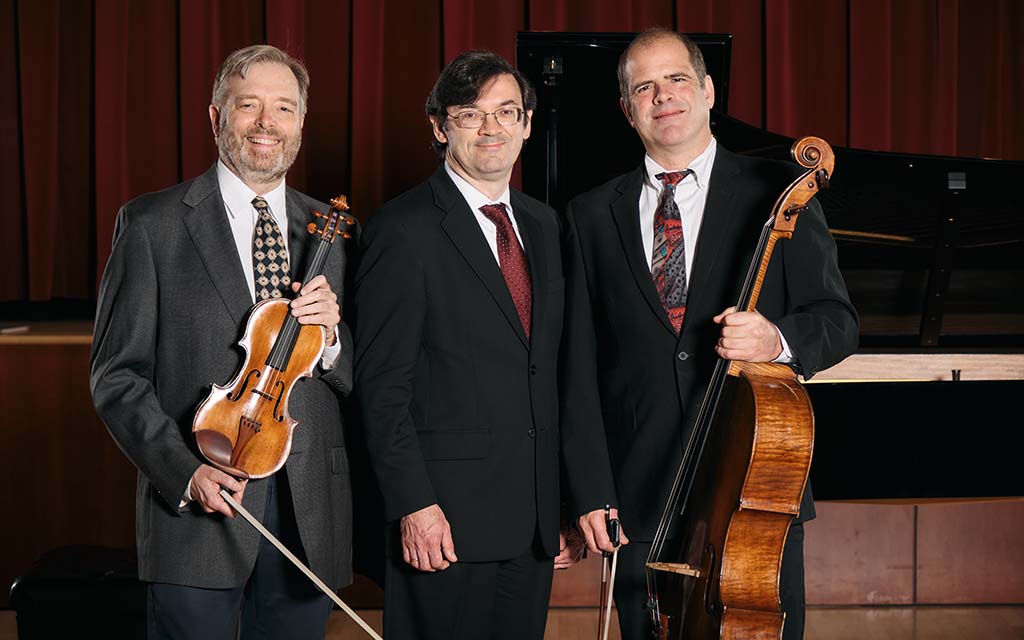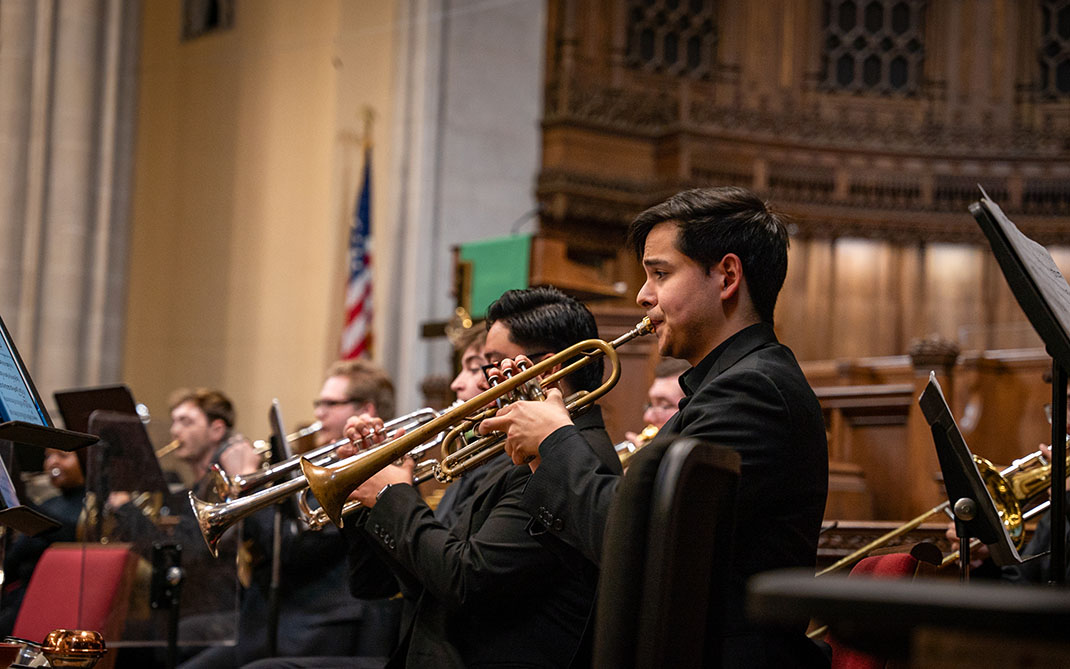Medical Leave Regulation 618
| Regulation 618 | Approved: March 17, 2025 |
| UNIVERSITY OF NORTH CAROLINA SCHOOL OF THE ARTS Medical Leave Regulation Regulation 618 |
|
| Source of Authority: | Federal & State Laws Cited Herein; UNC Policy Manual §§ 300.2.8, 300.2.10, 300.2.11 & 300.2.11[G]; OSP Manual § 5 pp.11-27.014 and pp. 27.1-27.3 |
| Revision Authority: | Chancellor |
| History: |
First Issued: February 17, 2011 Revised: December 11, 2020 Revised: March 17, 2025 |
| Related Policies: | Federal & State Laws Cited Herein; Family & Medical Leave, OSP Manual §5, pp. 11-27.014; Family Illness Leave, OSP Manual §5, pp.27.1-27.3; UNC Policy Manual §§ 300.2.8, 300.2.10, 300.2.11 & 300.2.11[G]; Employee Assistance Program Regulation 607; Payroll Regulation 307; Voluntary Shared Leave Regulation 628 |
| Responsible Offices: | Human Resources Department Provost |
| Effective Date: | March 17, 2025 |
I. Purpose
This regulation outlines leave entitlements available to employees in the case of the employee’s or a family member’s serious illness.
II. Scope
This regulation applies to all employees who meet the eligibility requirements set forth in law and in this regulation.
III. Definitions
A. “Faculty Serious Illness and Disability Leave” or “FSIDL” means paid leave for faculty members (1) for the birth of a child and to care for the newborn child; for the placement of a child with the employee for adoption or foster care; for the care of a child, spouse or parent who has a serious health condition; or for the employee’s own serious health condition; (2) as Qualifying Exigency Leave for families of covered service members; or (3) as Military Caregiver Leave.
B. “Family Illness Leave” or “FIL” means leave without pay provided to an eligible employee to care for the employee’s child, parent, or spouse where that child, spouse or parent has a serious health condition. It is an extension of the FMLA benefit except that FIL may not be used for absences due to the employee’s illness.
C. “Family & Medical Leave” or “FMLA” means reasonable paid or unpaid leave provided to an eligible employee (1) for the birth of a child and to care for the newborn child; for the placement of a child with the employee for adoption or foster care; for the care of a child, spouse or parent who has a serious health condition; or for the employee’s own serious health condition; (2) as Qualifying Exigency Leave for families of covered service members; or (3) as Military Caregiver Leave.
D. “Incapacity” means the inability to work, attend school or perform other regular daily activities due to a serious health condition.
E. “Continuous Leave” means the inability to work for a continuous period of time.
F. "Intermittent Leave" means the use of leave hours on a periodic basis.
G. “Reduced Work Schedule” means that the employee’s regular work schedule is reduced by some number of hours per week.
H. “Serious Health Condition” means (1) an illness, injury, impairment, and/or physical or mental condition that involves either inpatient care in a hospital, hospice, or residential medical care facility, or that involves continuing treatment by a health care provider; (b) any period of incapacity requiring absence from work of more than three calendar workdays that also involves continuing treatment by a health care provider; (c) continuing treatment by a health care provider for conditions so serious that, if not treated would likely result in an absence of more than three calendar workdays; or (d) any other circumstances defined by the applicable laws. Prenatal care and the period of actual physical disability associated with childbirth are considered serious health conditions.
I. For all other terms not otherwise defined in this regulation, the definitions contained in the relevant statutes, the OSHR Manual, UNC Code, and UNC Policy Manual are incorporated by reference.
IV. Regulation
A. Employee Eligibility
1. Family Medical Leave Act (FMLA)
a. Full and half-time (or more) SHRA employees who have at least 12 months of State service (as defined in the OSHR Manual) and who have worked for the state at least 1040 hours in the immediately preceding 12 months are eligible for FMLA leave with or without pay.
b. Temporary, part-time (less than half-time) and intermittent SHRA employees who have at least 12 months of service (as defined in the OSHR Manual) and have worked at least 1250 hours in the immediately preceding 12 months are eligible for FMLA leave without pay.
c. Faculty and all other EPS employees who meet the above minimum service and hour requirements are eligible for FMLA leave with or without pay.
d. Note. If the employee is in non-pay status more than 1,040 hours (26 weeks) through use of Family Illness Leave or otherwise, the employee would not qualify for Family and Medical Leave the following year since the required 1,040 hours in pay status within the previous year would not be met.
2. Faculty Serious Illness and Disability Leave (FSIDL)
a. To be eligible for FSIDL, a faculty member must:
i. not accrue sick leave;
ii. be otherwise eligible for FMLA leave; AND
iii. be eligible for participation in the state or UNC retirement plan.
b. Individuals with adjunct faculty appointments are not eligible for FSIDL.
3. Family Illness Leave (FIL)
a. The employee must be a full-time or at least half-time employee with 1040 hours of State service in the previous 12 months.
b. Temporary employees are not eligible for FIL.
B. Duration & Increments of Leave
1. FMLA Leave
a. FMLA Leave may be taken up to 12 weeks per 12-month period
b. Spouses who are both employed by the University are entitled to a total of 12 weeks of FMLA leave (rather than 12 weeks each) for the birth, adoption or foster care of a child or for the care of a sick parent.
c. The 12-month period for tracking FMLA leave allotments is a rolling 12-month period from the date of usage, not on a calendar or fiscal year basis. (e.g. if an employee takes three weeks of FMLA leave in March, that employee has nine weeks remaining until March of the following year.)
d. FMLA leave runs concurrently with both FIL and FSIDL (e.g. if an employee takes 4 weeks of FIL or FSIDL, they will also have used 4 of their 12 weeks of FMLA leave)
2. Family Illness Leave (FIL)
a. FIL provides a limited extension of the benefits beyond the 12 weeks provided under the FMLA Policy. Eligibility for FIL begins only after the FMLA benefit is fully exhausted.
b. FIL may be taken up to a total of 52 weeks per 5-year period. All periods of FIL leave, whether with or without pay, count towards the 52-week limit.
3. Faculty Serious Illness and Disability Leave (FSIDL)
a. FSIDL may be taken for a maximum of 60 calendar days.
4. When the basis for any approved leave (not previously designated as FMLA or FIL) falls within the scope of this regulation and the absence extends beyond three (3) workdays, the leave taken will count toward the allowable 12 work weeks of FMLA.
5. Leave taken under the Voluntary Shared Leave Policy may count towards the employee’s allotted amount of leave for both FMLA leave and FIL.
6. FMLA Leave Intermittent
a. FMLA Leave is taken in shorter increments of time when the employee is not entirely out of work.
b. In addition to taking leave for multiple consecutive days, an employee may arrange for a reduced work schedule or intermittent leave.
c. Reduced work schedules and/or intermittent leave options are not allowable for childbirth, birth-related child care, or adoption unless the employee and university agree otherwise.
d.. When an employee is on a reduced work schedule or intermittent leave, only the time not worked is counted against the total allowable medical leave.
e. Family Illness Leave may be taken intermittently and must be in units of one hour or more. If taken on a reduced work schedule, it cannot span more than a 52-week period.
C. Compensation & Benefits
1. Although FMLA and FIL leave are without pay, an employee may elect to cover some or all of the period of leave by using vacation, sick or voluntary shared leave.
2. Taking FMLA Leave does not result in the loss of any employment benefit(s) accrued prior to the date on which the leave commenced; however, an employee is not entitled to the accrual of any seniority or employment benefits during unpaid leave.
3. Pay and benefits are reduced proportionately on a reduced work schedule unless the employee uses paid leave to cover the time not worked.
4. If intermittent leave results in an employee being in a leave-without-pay status for more than half the working days in the month, vacation and sick leave accruals for the month are not earned.
5. While on unpaid FIL, the employee may continue coverage under the State's health insurance program by paying the full premium cost (no contribution by the State). If using FMLA, the employee's premiums will be paid by the State. UNCSA will not maintain any dependent coverage for an employee's dependents during this time. The employee may, however, elect to pay the health insurance premiums for his/her dependents.
6. If the employee fails to return to work at UNCSA after taking FMLA leave, the employee may be liable for any health insurance premiums paid by UNCSA during the employee’s FMLA leave.
D. Employee Responsibilities
1. Notice for FMLA
a. An employee shall at least provide notice to the University of the need for FMLA leave and the anticipated timing and duration of the leave.
b. The employee shall give notice to their supervisor as follows:
i. for birth, adoption, or planned medical treatment, as soon as practicable.
ii. If an employee is unable to give notice due to emergency medical conditions or premature birth, the supervisor must be notified as soon as practicable.
iii. Employees must also comply with UNCSA’s requirements for requesting leave.
c. If an employee needs to request FMLA leave after the fact, the employee has two business days upon returning to work to provide the appropriate information to be entitled to the protections of FMLA.
2. FIL Specific Responsibilities
a. The employee shall:
i. apply in writing to the supervisor for leave using a FIL Request form provided in the Human Resources Office;
ii. provide certification required;
iii. give written notice of intention to return to work at least thirty days prior to the end of the leave; and
iv. return to duty within or at the end of the time granted or notify the University when there is a decision not to return
b. The employee shall provide the requested recertification within the time frame requested. If the recertification or certification is not provided within the reasonable time frame, it may result in discontinued use of FIL. If the employee is not available to work, it may results in separation due to unavailability for work.
c. If the employee does not file notice of the intention to return, the university is not required to provide reinstatement but may do so if feasible.
d. Failure to report at the expiration of a leave, unless an extension has been requested and approved, may be considered as a resignation.
4. Designation of Leave Type
When requesting medical leave, the employee shall inform his/her supervisor of the beginning and end dates of leave or leave without pay to be used.
5. Returning to Work
a. If the employee cannot return to work at the end of the FMLA and FIL leave period, the supervisor should immediately be notified.
b. Failure to report at the expiration of a period of leave may be considered the employee’s resignation unless the employee has already been been approved for short-term disability or other forms of leave (vacation, bonus, sick or shared leave, or leave without pay).
6. FIL Specific Requirements
a. The employee must request FIL in writing and provide certification as requested by his/her supervisor.
b. The employee must give his/her supervisor written notice of the intent to return to work at least thirty (30) days prior to the end of the leave. The employee shall provide the requested recertification within the time frame requested. If the recertification or certification is not provided within the reasonable time frame, it may result in discontinuied use of FIL. If the employee is not available to work, it may result in separation due to unavailability for work.
7. University Expectations. UNCSA will promptly (generally, within five (5) business days of receiving notice of the leave) provide the employee with a notice detailing the specific expectations and obligations of the employee and explaining any consequences of a failure to meet these obligations.
E. Faculty Specific Provisions
a. A faculty member is considered absent for FMLA leave and FIL purposes when the faculty member misses scheduled classes, faculty meetings, scheduled office hours, or any other similar events or obligations because of a situation or condition which is or potentially may be covered by FMLA.
b. A faculty member shall inform the dean of his/her absence prior to its occurrence if possible.
c. A faculty member is considered absent under this regulation regardless of whether the dean or department arranges for another person to cover the class, meeting, office hours, or other event or obligation.
d. For parental purposes, a faculty member shall, upon their request, be granted 12 weeks of unpaid FMLA leave, inclusive of academic breaks, within 12 months of the birth or placement for adoption or foster care of the child.
e. For parental purposes, a faculty member shall, upon their request, be granted 60 calendar days of paid leave immediately following the birth or placement for adoption or foster care of the child and inclusive of academic breaks. This leave shall count toward the twelve weeks of leave guaranteed under the federal Family and Medical Leave Act.
f. For other approved FMLA reasons, a faculty member shall, upon their request, be granted up to sixty (60) calendar days of paid leave inclusive of academic breaks. This leave shall count toward the twelve weeks of leave guaranteed under the federal Family and Medical Leave Act.
g. If the timing of the faculty member’s return occurs during mid-semester and the faculty member cannot assume teaching responsibilities that have been assumed by substitute personnel, the faculty member may be given alternative assignments by the dean for the remainder of the semester and will be expected to continue his/her professional development. Funding for substitute personnel beyond the FSIDL period is the responsibility of the particular school or division.
h. When a faculty member is granted leave under this policy for birth, adoption, or placement of a foster child or for FMLA-qualifying medical conditions of 60 days or more, the faculty member will be granted a one-year extension to their current faculty contract. Contract reappointment evaluation and mid 10-year review and the associated deadlines will be extended accordingly.
F. Supervisor, Human Resources, & Provost Responsibilities
1. When an employee is out on sick leave for three or more consecutive days, the employee’s dean or supervisor shall inform Human Resources.
2. Once Human Resources has acquired knowledge that leave is requested for an FMLA-covered reason, Human Resources will confirm eligibility and will provide the FMLA forms (within three (3) business days). Human Resources will inform the supervisor the FMLA forms have been provided to the employee.
3. All notices provided under this subsection must be given in writing.
4. The supervisor and/or department head responsible for the payment of supplemental pay for an employee who is on continuous FMLA must initiate the PeopleAdmin action to cancel a supplement payment and will need to initiate the PeopleAdmin action to reinstate the supplemental pay action upon the employee's return to work.
G. Medical Certification
1. Any request for FMLA leave for a serious health condition must be supported by a certification issued by the health care provider for the person suffering the serious health condition or other condition justifying the leave.
2. The employee shall attach the medical certification to the request for FMLA leave within 15 calendar days.
3. In any case which UNCSA has reason to question the appropriateness of the leave or its duration UNCSA may request another certification at some later date.
4. If UNCSA has reason to doubt the validity of the certification provided by the employee, UNCSA may require at its expense, that the eligible employee obtains the opinion of a second (or third) health care provider.
G. Failure to Provide Medical Certification
1. In the case of foreseeable leave, the University may delay the taking of FMLA leave to an employee who fails to provide timely certification after being requested by the University to furnish such certification (within 15 calendar days, if practicable), until the required certification is provided.
2. In the case of unforeseeable leave, if the employee does not provide the medical certification within a reasonable time, the University may delay the continuation of FMLA leave. If the employee never produces the required medical certification, or if the certification does not confirm the existence of a serious health condition as defined under FMLA, then the leave is not allowed as FMLA leave.
I. Confidentiality
All records and documents relating to medical certifications, re-certification, or medical histories of an employee and the employee’s family members, shall be maintained in Human Resources in a separate medical file from the employee’s personnel file, and shall be treated as confidential medical records in accordance with the Americans with Disabilities Act of 1990 (ADA) and The Health Insurance Portability and Accountability Act of 1996 (HIPPA), as applicable.
J. Fitness for Duty/Notice of Intent to Return to Work
1. UNCSA may require an employee on FMLA leave to report periodically on the employee’s status and intent to return to work.
2. UNCSA requires employees to provide reasonable notice within two (2) business days of a change in circumstances or duration of FMLA leave.
3. As a condition of restoration for any employee who has taken FMLA leave for the employee’s own serious health condition (except for intermittent leave), UNCSA requires the employee to obtain (at the employee’s expense) a return-to-work certification from the employee’s health care provider.
a. This information should include whether the employee can perform the essential functions of their job with or without restrictions and the date they can return to work.
b. UNCSA may delay restoration to employment until the employee submits a return-to-work certification
I. Reinstatement to Work
1. Any eligible employee who takes approved FMLA leave shall be entitled, upon return from such leave, to the same or an equivalent position of employment with equivalent employment benefits, pay, and other terms and conditions of employment.
2. If the employee is unable to perform an essential function of his/her original position because of a physical or mental condition, including the continuation of a serious health condition, the employee has no right to reinstatement to another position under FMLA. However, UNCSA will review such situations on a case-by-case basis under the Americans with Disabilities Act (ADA).
J. Retaliation
UNCSA will not interfere with an eligible employee’s rights under FMLA, FIL, or FSIDL, and will not terminate or discriminate against employees who exercise such rights. Aditionally, UNCSA shall not retaliate against employees who file, initiate, or otherwise assist in charges or investigations.
K. Grievances
Denial of FIL can be grieved through the UNCSA’s regular grievance processes.
V. Revision History
A. February 17, 2011 – Adopted by Board of Trustees as part of UNCSA Policy Manual
B. May 13, 2019 - Revised language under Duration and Increments of Leave to clarify maximum amount of FSIDL leave to be one semester.
C. December 11, 2020 - Revised to clarify the length and timing of unpaid parental leave for faculty under FMLA, the length and timing of paid parental leave under the Faculty Serious Illness and Disability Leave policy, return to work planning, and the impact of leave on faculty contract lengths.
D. March 17, 2025 - Revised to align with UNC System and OSHR policies and guidelines.
UNIVERSITY OF NORTH CAROLINA SCHOOL OF THE ARTS
Medical Leave Procedures
Procedure 618
I. Designation of Leave
A. The employee, supervisor, or Human Resources shall designate the leave as FMLA, FIL, or FSIDL on the supervisor acknowledgement form. If practicable, this should occur prior to taking leave.
B. The employee or supervisor must explain the reasons for the FMLA and FIL leave sufficiently to enable Human Resources to determine that the leave qualifies under the FMLA or FIL. If the employee fails to adequately explain or document the FMLA for FIL-qualifying reasons for the leave after a request by Human Resources, leave may be denied.
C. If an employee on paid or undpaid leave has not provided sufficient information to determine whether it is designated as FMLA or FIL leave, the Human Resources Department head shall, after a period of fifteen (15) calendar days, request that the employee provide sufficient information to establish a FMLA or FIL-qualifying reason for the leave.
D. Employees (or supervisors of employees) on FMLA leave must note time taken as FMLA on their Leave Report or excel spreadsheet.
II. Continuation of Healthcare Coverage
A. The University’s obligation to maintain health insurance coverage stops if an employee’s premium payment is more than thirty (30) days late. The University must provide the employee with at least fifteen (15) days notice that coverage will cease.
B. If an employee’s failure to make the premium payments leads to a lapse in coverage, the University must still restore the employee, upon return to work, to the health coverage equivalent that employee would have had if leave had not been taken and premium payments had not been missed without any waiting period or preexisting conditions.
C. The University may recover the premiums if the employee fails to return for a reason other than the continuation, recurrence, or onset of a serious health condition of the employee or the employee’s immediate family member, or other circumstances beyond the employee’s control.
III. Faculty Serious Illness & Disability Leave Procedures. Procedures for FSIDL are subject to the applicable provisions of this regulation, its associated procedures, and UNCSA’s Faculty Manual in effect at the time the leave was first designated as FSIDL.
IV. Transfer. When an employee transfers to or from another State agency or University, Human Resources shall record or request on the Prior State Service Form the date FMLA and FIL was first taken and the amount taken.





